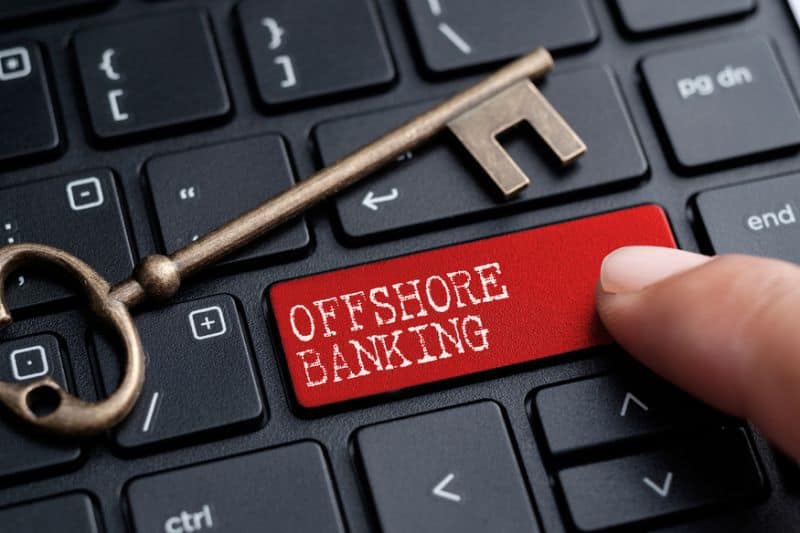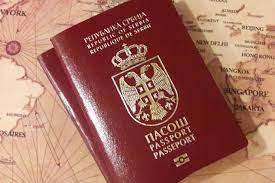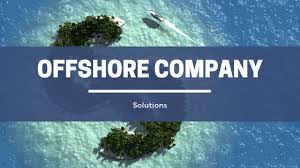The advantages of offshore banking
The advantages of offshore banking

Before delving deeper into the topic, the question arises as to what offshore banking even means. It is a practice where a person or company deposits funds in a bank abroad.
Although the term “offshore” originally referred to islands and coastal regions, today most banks offering offshore accounts are no longer necessarily based near the water. Such banks were founded primarily to relieve investors of high tax burdens and at the same time to attract more investments.
There are numerous benefits that come with offshore banking. The services provided by offshore banks are similar to those provided by domestic banks. Offshore banking is also sometimes referred to as private banking, although these terms are not synonymous.
Personal presence to open an account is not always required, although opening accounts remotely is becoming increasingly difficult. You can open your account using notarized documents containing proof of your assets and identity.
Onshore intermediaries, which may be located in your home country, may also be used to set up accounts with larger deposits.
The advantages of offshore banking
Since the inception of offshore banks, they have received much negative attention from both national jurisdictions and the media. Many people associate offshore banking with money laundering and tax evasion. But the true purpose of these banks goes far beyond that.
An important advantage of offshore banking is the protection of your investment. A bank account in a foreign jurisdiction is one of the best ways to protect your wealth. Given the unstable political environments we are currently experiencing, such an account will give you peace of mind and peace of mind that your investment is safe while you get on with your normal life.
Another benefit of offshore banking is that, similar to cryptocurrencies, these banks are not controlled by your home government. This makes it harder for governments to freeze your account. In addition, offshore banks often offer higher interest rates on your money than domestic banks.
In fact, there are offshore banks that offer yields twice that of banks in the United States. In this way, offshore banking allows you to benefit from greater diversification, higher interest rates and peace of mind.
Opening an offshore account is considered complicated by many people. In reality, however, anyone – even the average person – can open such an account without any problems.
The opening process is similar to a regular on-site bank account opening, it just requires a few additional documents and certifications. In some cases it’s even easier.
Personal information is required to open the account, such as your full name, ID card or passport, citizenship, address and occupation. A driver’s license or passport may also be required to verify your details.
As mentioned earlier, there are additional requirements when opening an offshore account compared to opening an account at your local bank. These requirements are designed to reduce illegal activities such as fraud and money laundering.
These requirements include:
Financial documents that should be provided by your local bank. These documents should show a “satisfactory relationship” with you and your average balances.
Indication of the type of transactions to take place on the offshore account. This requirement is mainly to prevent illegal activities. You must provide documents proving the sources of the funds that will be deposited into the offshore bank account.
However, other banks have stricter rules and may require more extensive documentation and evidence. You should also pay attention to the fees associated with opening and maintaining the account.
Another important factor is the reputation of the bank. You should make sure the bank is reputable and has a good track record. It is also important to check that the bank is regulated by a recognized regulator.
Finally, you should also be aware of the tax regulations. It is important that you understand the tax laws in your country of residence and in the country where the offshore bank is based. You should also make sure that you pay all the necessary taxes to avoid getting into legal trouble.
There are also banks where you do not have to open the account in person; You can open the account from the comfort of your own home. You just have to take your time and find a bank that is not only safe but worth your investment.
Before opening an offshore bank account, you should find out about the relevant rules and regulations. However, if you comply with these laws, there are usually no problems with the authorities.
Although offshore accounts are often associated with the misuse of public funds, this does not automatically mean that they are illegal. As long as you comply with the reporting requirements, you have nothing to worry about.
Which are the best countries for offshore banking?
There are many factors to consider when choosing the best country for offshore banking, such as the legal environment, political stability and tax laws.
Some of the most popular countries for offshore banking are Switzerland, Singapore, Hong Kong, the Cayman Islands, the Bahamas, UAE, Malaysia, Panama and Vanuatu. These countries have a long history of offshore banking and offer a safe and discreet banking environment.
However, it is important to note that the laws and regulations in these countries are subject to change, so it is advisable to do your research and seek professional advice before opening an offshore bank account. One of these countries is the Cayman Islands.
The islands not only enjoy a good international reputation, but also offer a wide range of financial services. They are also politically and economically stable. The islands are also tax havens.
Offshore jurisdictions typically have few restrictions and minimal tax obligations for legitimate business.
An example of this is the Cayman Islands, which levy no taxes on corporations, capital gains, wealth, income or payroll. There is also the possibility to transfer money in any currency inside and outside the islands for free.
Singapore is an attractive option for opening an offshore bank account due to its easy account opening and strict banking regulation. It is a safe place to store assets and banks usually have experienced wealth managers who can help select the best investments.
Switzerland is another country that can guarantee you reliable protection of your assets. The country is internationally known for its excellent banks where you can safely invest your money.
Another benefit of Switzerland is its reputation for strict privacy laws, which prevent banks from disclosing information about your account without your consent. However, Switzerland has changed in recent years in terms of taxes.
Before opening an offshore bank account, it is important to know that the requirements and costs may vary depending on the country and financial institution where you wish to open the account.
The requirements are similar to local banks. Personal data such as name, address, occupation, date of birth and nationality are required to verify your identity. Additionally, documents such as your passport and proof of address are required. The type of transaction that will take place on the account is also requested.
The cost of opening and maintaining an offshore bank account depends on various factors such as the country and bank you open the account with, the type of transactions and the amount of money in the account. Some offshore banks may charge high fees for non-residents, while others charge moderate or no fees.
It is important to note that additional hidden fees such as transaction fees and withdrawal fees may apply. It is therefore advisable to clarify all fees in advance to avoid unexpected costs.
Offshore banking summary
Despite the debates surrounding offshore banking, there are many advantages to opening an account in an offshore jurisdiction.
Opening an account with an offshore bank is easy and sometimes doesn’t even require a trip to the country of your choice.
All you have to do is provide the required identification documents and prove that you do not intend to use your account for illegal activities.
Choosing a stable currency can be difficult, so it’s important to explore different options.
Remember to seek advice from a tax expert to ensure you are compliant with both local and international tax regulations.
Are you worried about your financial future and the security of your family in an uncertain world? Do you want to protect your family and ensure that your children grow up in a safe environment, away from war zones and the risk of conscription?
We’ve helped hundreds of people move their businesses overseas, legally reduce their taxes, and become dual citizens. We are focused on high-net-worth individuals and their families as well as corporations wishing to invest their offshore companies or even secure their wealth in offshore financial centers around the world. We will help you to find the best solution for setting up an offshore or onshore company. Another special area of our full-service consulting is the investment opportunity and solution in Europe, especially in the Balkans, Africa, Asia, UAE, the Caribbean and the Pacific.
If you are looking for it, please feel free to contact us. We create a holistic plan that serves your purpose.
The TCME Group Worldwide as well its partner in Vanuatu are accredited, licensed and authorized agents and facilitators of the Government of Vanuatu for the citizenship programs of the VDSP and the CIIP in Vanuatu.
GCI UNIT Worldwide by TCME Worldwide Group, designs and implements customized, holistic strategies for successful investors and entrepreneurs to legally reduce their tax bills, diversify and protect their wealth, invest abroad, gain a second citizenship and live a freer life worldwide to lead.
YOUR CHANCE FOR A BETTER LIVE
TCME Worldwide Group firm is a leading professional International Business Investment and Advisory Firm for Foreign Economic Relations. Our range of services includes:
Offshore and Onshore Company Formation,
international Business & Management
Citizenship & Residency (Advice on residency and citizenship by investment programs, VIP citizenship programs in cooperation with more than 70 countries)
Investments & Corporate Financing
Advisory for Foreign Economic Relationship
Diplomatic Consultancy & Public Affairs
If you would like to discuss your internationalization and diversification plans, book a consulting session* or email us under: [email protected]
*A counseling session is a conversation about your portfolio and goals. It does not constitute legal, financial, tax or investment advice.
TCME Worldwide Group – Global Investments –
Level 33, Ilham Tower, 8 Jalan Binjai,
Kuala Lumpur 50450, Malaysia
www.tcme.company
www.citizenship-news.com
International Phone: +66 99091 8357 (also for BOTIM, Signal, Viber, Telegram)
Malaysia Phone: +603 2169 7057
Montenegro Phone: +382 69 150 130 (WhatsApp)
Telegram https://t.me/passport_Vanuatu
Telegram https://t.me/passport_news





